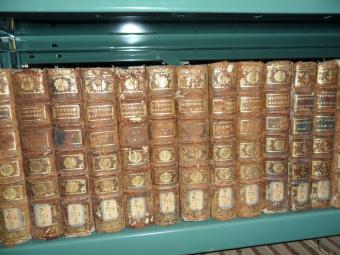With the explosion of the new technologies, the scientific and cultural contents are diffused more and more frequently by the means of the digital; the critical apparatuses which accompany them also tend to be sophisticated. New practices of reading, exploitation, and diffusion are established. To apprehend these new phenomena, a discipline is emerging: Digital Humanities. Its definition, still in flux today, tends to focus on the creation of new knowledge in the humanities and social sciences. The changes, radical and profound, are not only technical but also epistemological, sociological and cognitive.
Moreover, digital content must respect the good practices that are affiliated with them. Structured and documented according to standard and interoperable formats, they pose before our eyes new objects of knowledge that require exploitation tools as well as innovative visualization processes.
These visualization techniques are becoming a crucial issue for all publishing and digital content management projects. They allow, for example, to highlight the ignored aspects of a work, to support a study, to deepen a research track or to provide evidence to a reasoning. But to do this, it is necessary to become aware of new ways of reading and acquiring encoded documents.
Our seminar will expose the main initiatives and practices related to digital humanities in order to publish and exploit cultural content. Digital publishing responds to encoding principles capable of interpreting the diversity of textual meanings in computer tags. The goal is not, however, to train in a tool or a method: that would narrow the scope of an emerging discipline. Rather, we would like to provide a historical overview of the issues and propose elements of approach in the management of cultural heritage.
The entire cycle of seminars takes place in person at the University of Corsica Pasquale Paoli, in the immersive room of the UMR 6240 Lisa (Simeoni building.) Health pass required.
It can be followed remotely in livestreaming on request sent by email to dhlive@univ-corse.fr. Scientific leaders: Christophe Luzi and Richard Walter.
For more information, see the presentation page on the UMR Lisa website.

